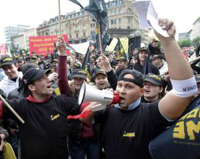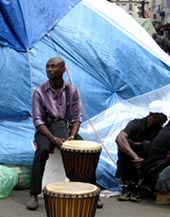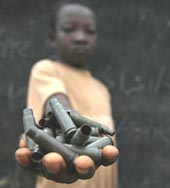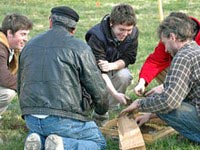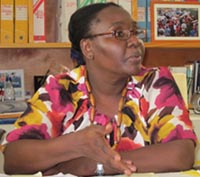
The Urgency of Housing in Haiti
Colette Lespinasse is director of the Support Group for the Repatriated and Refugees (GARR, by its French acronym) in Port-au-Prince. Here are her thoughts on solutions to the crisis in which 1.9 million homeless people are still living in precarious tents and other makeshift structures, six months after the earthquake.

